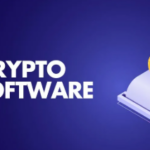I’ll talk about cryptocurrency alternatives to conventional crowdfunding sites in this post, with an emphasis on how blockchain technology is changing the fundraising landscape.
These platforms provide low-cost, transparent, decentralized solutions with minimum KYC requirements, in contrast to traditional approaches.
Crypto platforms offer cutting-edge tools that enable international creators, entrepreneurs, and communities to effectively generate finance, from token launches to real-time financing streams.
Key Points & Crypto Alternatives To Traditional Crowdfunding Platforms
| Platform | Key Point |
|---|---|
| KickICO | Blockchain-based crowdfunding platform enabling ICOs with minimal KYC barriers. |
| CoinList | Trusted token launch platform offering compliant early access to vetted crypto projects. |
| Polkastarter | Decentralized IDO launchpad supporting cross-chain token sales with low entry barriers. |
| Mirror Protocol | Synthetic asset protocol enabling decentralized exposure to real-world assets, not direct crowdfunding. |
| Juicebox | Web3-native crowdfunding protocol ideal for DAOs and NFT projects, with on-chain fund management. |
| Superfluid | Real-time crypto payment streaming protocol enabling continuous fundraising and recurring donations. |
| Bitbond | Regulated platform for issuing tokenized bonds and debt instruments, ideal for SMEs and fintechs. |
1.KickICO
KickICO provides decentralized, transparent, tokenized fundraising solutions using blockchain technology. Innovative startups can take advantage of its platform to launch and manage Initial Coin Offerings (ICOs) or token sales directly through it, bypassing conventional financial gatekeepers.

KickICO stands apart from traditional crowdfunding by using smart contracts to automate fund distribution and protect backers’ interests.
By encouraging an international investor community and decreasing platform fees while maintaining immutable records of contributions through its native KICK token, KickICO empowers both creators and supporters – making it one of the most innovative crypto alternatives to traditional crowdfunding.
| Feature | Details |
|---|---|
| Platform Type | Blockchain-based crowdfunding and ICO launchpad |
| Blockchain Used | Ethereum (ERC-20 based ecosystem) |
| Token | KICK Token |
| KYC Requirement | Minimal for contributors; project creators may face basic compliance |
| Crowdfunding Model | Supports ICOs, token sales, and decentralized fundraising |
| Fees | Lower than traditional platforms; transparent fee model |
| Transparency | Smart contracts ensure fund traceability and reduced fraud |
| Use Case Strength | Launching blockchain projects with global reach and lower entry barriers |
2.CoinList
CoinList distinguishes itself as a cryptocurrency-powered substitute for conventional crowdfunding by providing an authorized platform for token sales to raise money for early-stage blockchain initiatives.
Its distinctive feature is its ability to combine worldwide accessibility with regulatory compliance, enabling vetted initiatives to engage accredited and retail investors without the hassles of traditional fundraising.
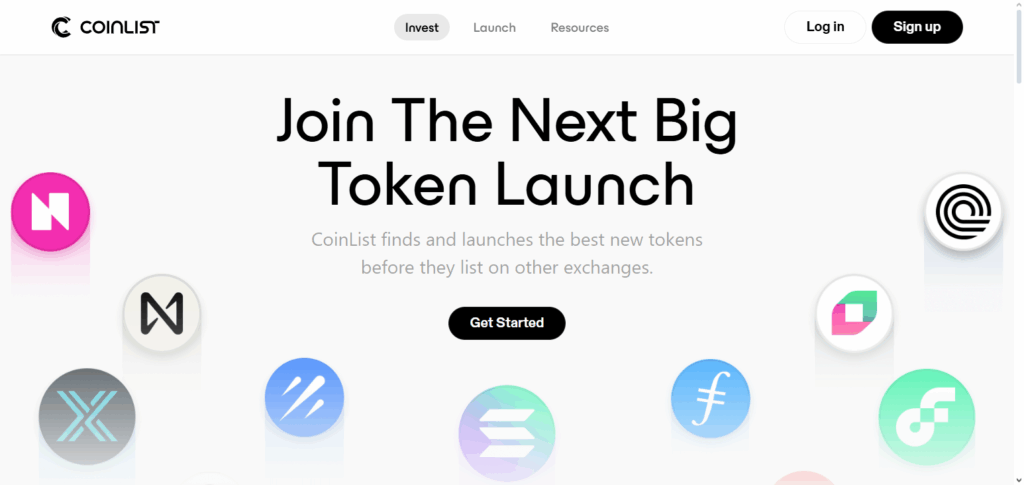
By streamlining investor onboarding, token issuance, and KYC/AML processes, CoinList makes it possible to participate in Web3 innovation safely and effectively.
In contrast to traditional crowdfunding, it links investor interest with project success and exposes investors to future protocol tokens. Because of this, CoinList provides a strong entry point for crypto-native fundraising that goes beyond the constraints of traditional crowdfunding.
| Feature | Details |
|---|---|
| Platform Type | Token sale and launch platform for vetted crypto projects |
| Blockchain Support | Ethereum, Solana, and other major chains |
| Native Token | None |
| KYC Requirement | Required but streamlined; varies by jurisdiction and investment size |
| Crowdfunding Model | Token sales, auctions, airdrops, and early access to blockchain projects |
| Fees | Competitive fees; project-based |
| Transparency | Fully compliant; project vetting and disclosures provided |
| Use Case Strength | Trusted gateway for early-stage crypto investment and token distribution |
3.Polkastarter
Polkastarter is a decentralized platform that revolutionizes crowdfunding by facilitating the raising of funds for blockchain initiatives via interoperable token pools. Its special benefit is cross-chain funding, which enables projects to access liquidity from more than just Ethereum.
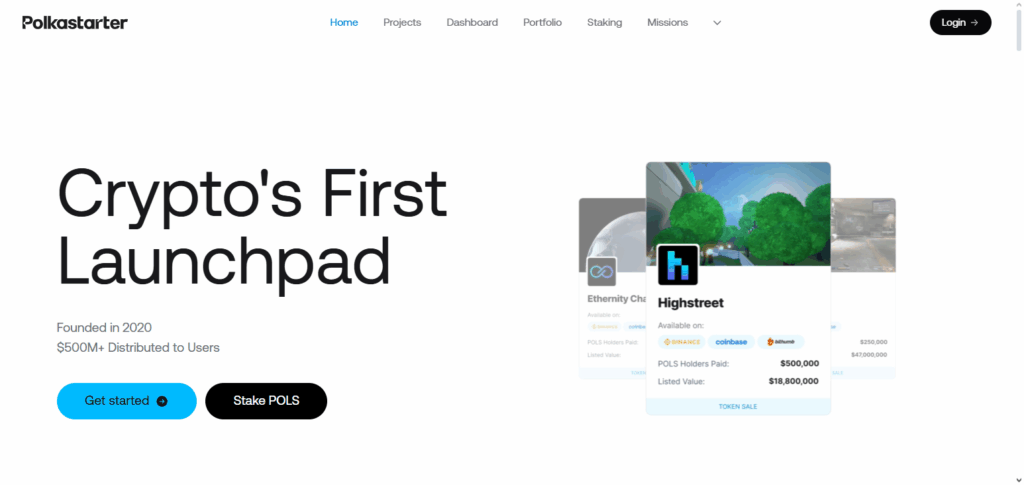
Polkastarter, which reduces transaction costs and improves scalability, addresses key problems with conventional crowdfunding. It is based on the Polkadot ecosystem. Whitelisting and anti-bot protection are two features that provide early supporters more influence and equitable access.
The platform also offers permissionless listings and community governance. Because of its creative strategy, Polkastarter is positioned as a crypto-native fundraising progression that overcomes the technological and geographic limitations of traditional crowdfunding platforms.
| Feature | Details |
|---|---|
| Platform Type | Decentralized IDO launchpad for early-stage crypto projects |
| Blockchain Support | Ethereum, BNB Chain, Polygon, Polkadot, and more |
| Native Token | POLS Token |
| KYC Requirement | Minimal KYC for small contributors; varies by region and project |
| Crowdfunding Model | Decentralized token sales (IDOs) via whitelist and community pools |
| Fees | Low; paid in crypto, mostly project-side |
| Transparency | Smart contracts handle fund flow and allocation securely |
| Use Case Strength | Community-driven fundraising with cross-chain support and low barriers |
4.Mirror Protocol
By facilitating the production and exchange of artificial assets that closely resemble actual financial instruments, Mirror Protocol presents a cutting-edge cryptocurrency substitute for conventional crowdfunding.
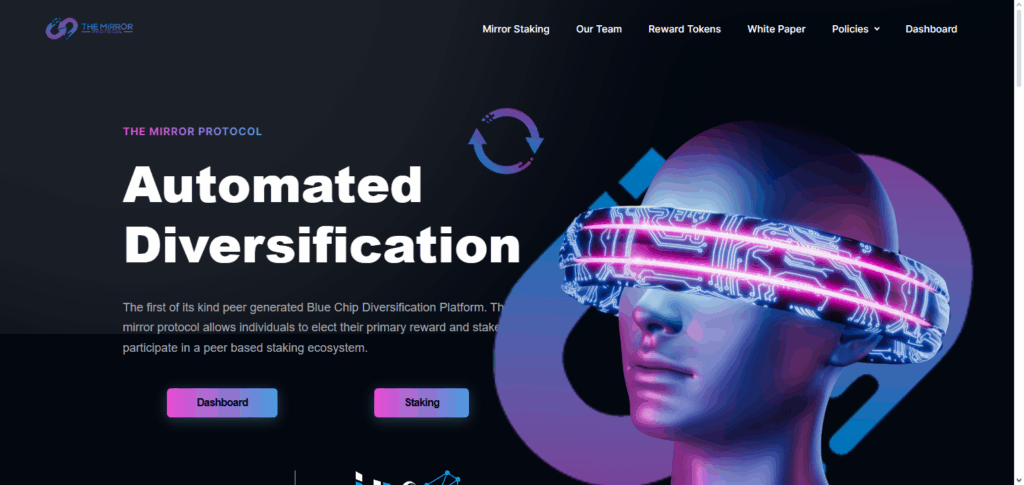
Its ability to provide decentralized access to mirrored stocks and commodities, enabling international players to back or speculate on enterprises without direct ownership, is its special strength. In contrast to traditional crowdfunding, Mirror democratizes exposure and liquidity by allowing fractional investment using synthetic tokens.
It is based on the Terra blockchain and makes use of smart contracts to guarantee automated, transparent asset management. Mirror Protocol is positioned as a revolutionary method of funding and interacting with digital asset ecosystems due to its integration of synthetic finance and DeFi principles.
| Feature | Details |
|---|---|
| Platform Type | Decentralized synthetic asset protocol (not direct crowdfunding) |
| Blockchain Support | Originally built on Terra; also integrated with Ethereum and BNB Chain |
| Native Token | MIR Token |
| KYC Requirement | Minimal to none; fully decentralized and accessible via Web3 wallets |
| Crowdfunding Model | Indirect exposure via synthetic assets, not traditional fundraising |
| Fees | Low transaction fees; based on network usage |
| Transparency | Smart contracts ensure open access and verifiable asset creation |
| Use Case Strength | Enables users to gain exposure to real-world assets without intermediaries |
5.Juicebox
For creators, DAOs, and projects looking for alternatives to conventional crowdfunding, Juicebox is a decentralized fundraising platform that provides crypto-native solutions. Programmable treasury management is one of its distinctive features; donors fund projects transparently, and smart contracts distribute funds automatically according to predetermined regulations.
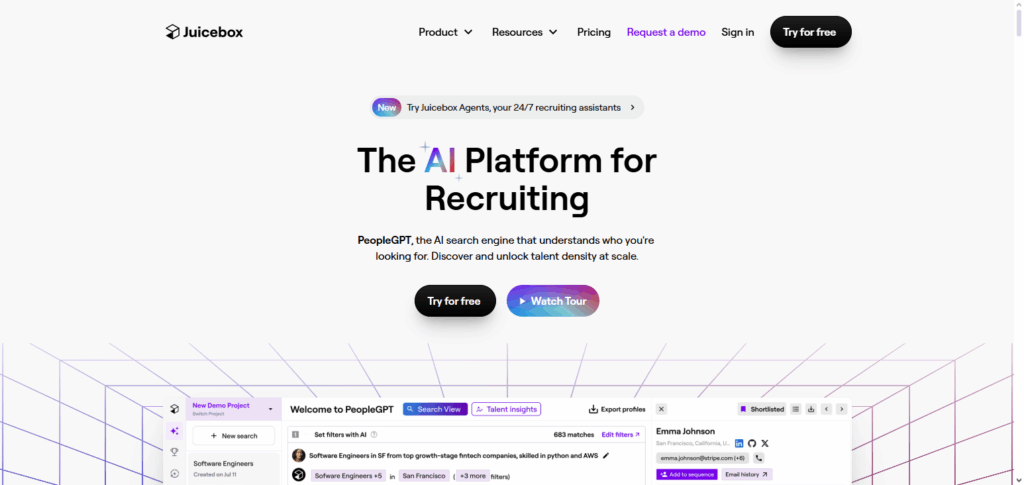
Juicebox, in contrast to older systems, enables ongoing fundraising with dynamic token issuance, providing backers with governance rights or benefits linked to their contributions. Because the protocol is fully composable and open-source, projects can customize financial logic without the need for middlemen.
Because of this, Juicebox is a community-first, adaptable crowdfunding platform that fosters Web3 innovation at the grassroots level without depending on centralized infrastructure for financing.
| Feature | Details |
|---|---|
| Platform Type | Decentralized crowdfunding protocol for Web3 projects |
| Blockchain Support | Ethereum (primary), with Layer 2 integrations (e.g., Base, Optimism) |
| Native Token | No native token; each project may issue its own |
| KYC Requirement | None required; open participation via Web3 wallets |
| Crowdfunding Model | Community-driven fundraising using smart contracts |
| Fees | Low protocol fees; customizable by project creators |
| Transparency | Full on-chain fund management and governance |
| Use Case Strength | Ideal for DAOs, NFT projects, and open-source funding |
6.Superfluid
Superfluid presents a real-time, continuous finance paradigm that uses programmable money streams to reinvent crowdfunding. Its distinct advantage is that, as opposed to depending on one-time donations, it allows projects to get money every second through streaming payments.
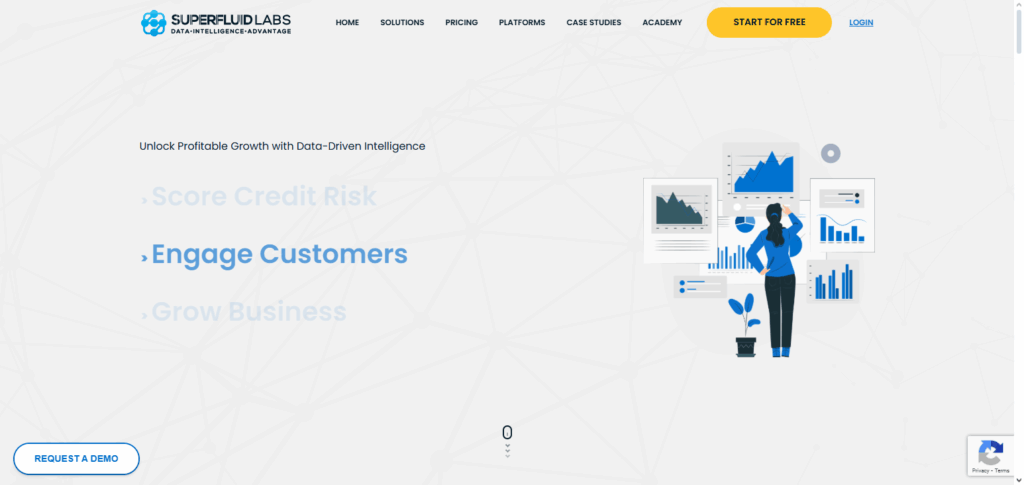
Superfluid, which is based on Ethereum and similar chains, gives donors the flexibility to support projects over time while providing unparalleled transparency and control by allowing them to suspend or reroute payments quickly.
This flexible capital distribution lowers risk and synchronizes funding with continued performance. Superfluid distinguishes itself as a revolutionary cryptocurrency substitute for conventional crowdfunding by doing away with manual transfers and encouraging ongoing support, making it perfect for DAOs, creators, and developing Web3 projects.
| Feature | Details |
|---|---|
| Platform Type | Real-time finance protocol for streaming payments and fundraising |
| Blockchain Support | Ethereum, Polygon, Optimism, Arbitrum, Avalanche |
| Native Token | No native token; protocol used with supported tokens |
| KYC Requirement | None required for using the protocol via Web3 wallets |
| Crowdfunding Model | Continuous funding via token streaming instead of one-time contributions |
| Fees | Minimal protocol fees; cost-efficient for creators and backers |
| Transparency | Fully on-chain, auditable, and programmable financial flows |
| Use Case Strength | Ideal for DAOs, grants, creator economies, and recurring crypto donations |
7.Bitbond
By tokenizing debt and facilitating international peer-to-peer financing, Bitbond, a blockchain-based funding platform, revolutionizes conventional crowdfunding.
Its distinctive feature is the blockchain-based issuing of tokenized bonds, which enables companies to raise money straight from international investors without the need for middlemen.
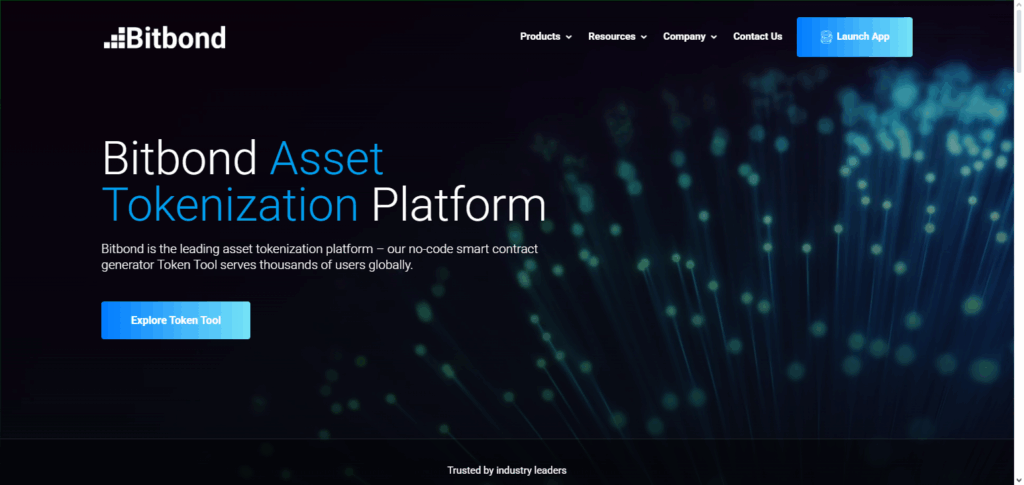
In contrast to traditional crowdfunding, Bitbond ensures efficient and trustless capital flow by automating loan terms, interest payments, and repayments through smart contracts.
It is regulated in Germany and appeals to both institutional and individual investors because it blends decentralization and compliance.
Bitbond redefines lending as a crypto-native crowdfunding option by providing investors with safe, marketable digital assets and enabling small enterprises to obtain capital in a transparent manner.
| Feature | Details |
|---|---|
| Platform Type | Tokenization and debt financing platform for businesses |
| Blockchain Support | Stellar, Ethereum (via integrations) |
| Native Token | No native token; supports tokenized bonds and securities |
| KYC Requirement | Light KYC for issuers; minimal or none for investors in compliant regions |
| Crowdfunding Model | Security token offerings (STOs) and tokenized debt instruments |
| Fees | Competitive token issuance and management fees |
| Transparency | Regulated and blockchain-auditable issuance process |
| Use Case Strength | Ideal for SMEs raising funds via regulated digital assets |
Conclusion
Crowdfunding systems based on cryptocurrency are revolutionizing the way projects raise money by providing decentralized, transparent, and internationally accessible funding options. These alternatives, in contrast to established platforms, frequently have lower costs, need less KYC, and use tokenization and smart contracts to empower both creators and backers.
Platforms like KickICO, Polkastarter, Juicebox, and Superfluid are effective tools for fundraising in the future because they show how flexible blockchain technology is in supporting a variety of funding patterns, from one-time IDOs to ongoing payment streams.
FAQ
What are crypto crowdfunding platforms?
They are blockchain-based platforms that enable fundraising using cryptocurrencies and smart contracts instead of traditional financial systems.
How are they different from traditional platforms like Kickstarter?
Crypto platforms offer decentralization, lower fees, faster payments, token-based incentives, and often minimal KYC requirements.
Do I need to complete KYC to contribute?
Many platforms require little to no KYC, especially decentralized ones like Juicebox and Superfluid. Centralized platforms like CoinList may require it.







